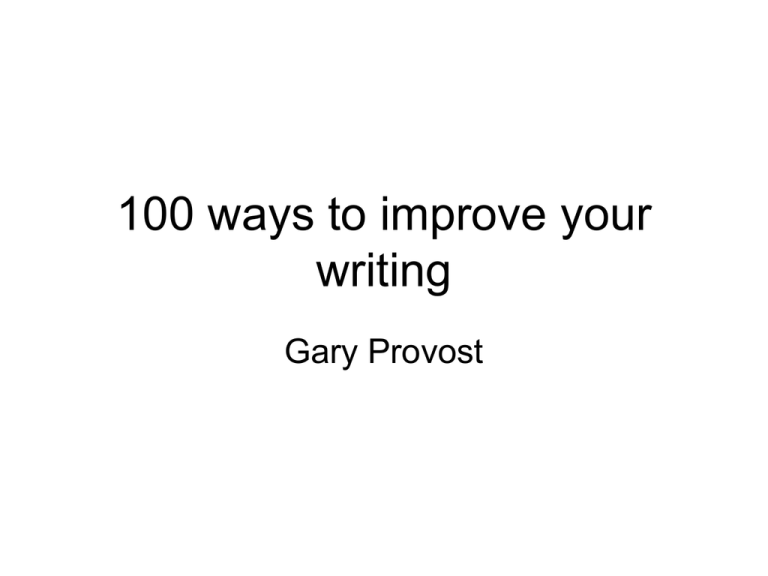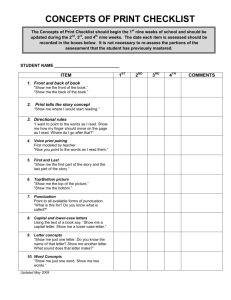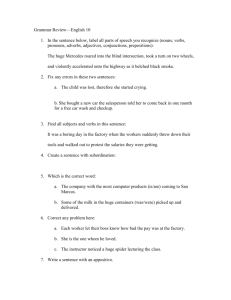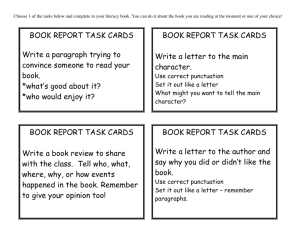100 ways to improve your writing Gary Provost
advertisement

100 ways to improve your writing Gary Provost Nine ways to improve your writing when you’re not writing 1.Get some reference books 2.Expand your vocabulary 3.Improve your spelling 4.Read 5.Take a class 6.Eavesdrop 7.Research 8.Write in your head 9.Choose a time and place Nine ways to overcome writer’s block 1.Copy something 2.Keep a journal 3.Talk about what you’re writing 4.Touch your toes 5.Do writing exercises 6.Organize your material 7.Make a list 8.Picture a reader 9.Ask yourself why you are writing Five ways to write a strong beginning 1.Find a slant 2.Write a strong lead 3.Don’t make promises you can’t keep 4.Set a tone and maintain it 5.Begin at the beginning Nine ways to save time and energy 1.Use pyramid construction 2.Use topic sentences 3.Write short paragraphs 4.Use transitional phrases 5.Don’t explain when you don’t have to 6.Use bridge words 7.Avoid wordiness 8.Steal 9.Stop writing when you get to the end Ten ways to develop style 1.Think about style 2.Listen to what you write 3.Mimic spoken language 4.Vary sentence length 5.Vary sentence construction 6.Write complete sentences 7.Show, Don’t tell 8.Keep related words together 9.Use parallel construction 10.Don’t force a personal style Twelve ways to give your words power 1.Use short words 2.Use dense words 3.Use familiar words 4.Use active verbs 5.Use strong verbs 6.Use specific nouns 7.Use the active voice…Most of the time 8.Say things in a positive way…Most of the time 9.Be specific 10.Use statistics 11.Provide Facts 12.Put emphatic words at the end Eleven ways to make people like what you write 1.Make yourself likable 2.Write about people 3.Show your opinion 4.Obey your own rules 5.Use anecdotes 6.Use examples 7.Name your sources 8.Provide useful information 9.Use Quotations 10.Use Quotes 11.Create a strong title Six ways to avoid punctuation errors 1.Use orthodox punctuation 2.Know when to use a comma 3.Know when to use a semicolon 4.Know when to use a colon 5.Use exclamation points only when exclaiming and question marks only when asking questions 6.Know how to use quotation marks Twelve ways to avoid making your reader hate you 1.Avoid jargon 2.Avoid Cliches 3.Avoid parentheses 4.Avoid footnotes 5.Don’t use transitions to conceal information 6.Don’t acknowledge when you should explain 7.Don’t hide behind your words 8.Don’t intrude 9.Don’t play words games 10.Don’t play the Tom Wolfe Game 11.Don’t play mystery game 12.Don’t cheat Seven ways to edit yourself 1.Read your work out loud 2.Cut unnecessary words 3.Think about what you have written 4.Ask yourself these questions 5.Follow these rules of form for titles 6.Prepare a perfect manuscript 7.Use common sense


